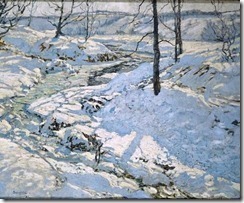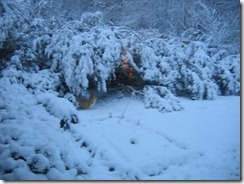Elizabeth Spann Craig's Blog, page 218
January 7, 2011
Should We Finish Writing a Bad Book (If it's our First Novel?)
 I've forgotten a lot about learning new skills as a child. Riding a bike? Roller skating? Swimming? I learned how to do those things, but my memory is shaky on it. It comes back to me in flashes, though, when I see my kids mastering new skills.
I've forgotten a lot about learning new skills as a child. Riding a bike? Roller skating? Swimming? I learned how to do those things, but my memory is shaky on it. It comes back to me in flashes, though, when I see my kids mastering new skills.
It took my daughter years to even want to ride a bike. When she finally agreed to have me help her learn, she was terrified the whole time. A couple of times she asked me to put the training wheels back on her bike.
But—once she got it, she got it. And all she wanted to do all day long was ride a bike. She felt completely confident and triumphant and she wanted to practice (and show off) her new skill as much as she could.
Same with my son and ice skating. And my daughter with roller skating.
I was really the same way with writing a book. I messed around with manuscripts in my twenties. I'd get an idea, fall in love with the idea, fervently start writing the idea.
Then I'd get to the point where I lost faith in my ability to finish the book, or I'd fall out of love with the idea, or I'd get a shiny new idea that seemed a lot better.
I think there were three unfinished manuscripts.
The writing I did was still helpful to me. I got a lot of practice and a better feel for my voice.
But I didn't feel confident. I still thought I might fall off the bike. I hadn't been able to follow a book through to completion.
If I had finished one of those books, it would still have been a book that needed a lot of work. And one of the unfinished manuscripts would have been a real stinker of a bad book.
At least, though, I'd have had the confidence that I could finish the book. And that would have gotten me writing more and more. Writing more and more would have made my writing better, quicker.
It would have been like my kids, mastering their new skills and then skating and biking like crazy—reveling in the skill.
Is it worth it to finish a bad book? I think it is. Unless you get a shiny new idea that comes into your head almost fully-realized. I think it's important to prove to ourselves that we can finish a book. Even if it's not marketable, even if it's just for ourselves. Because the second book will be better.
What do you think? Finish a bad book…or start working on a better idea? How many manuscripts do you have in your manuscript graveyard (I've admitted to three…) :)
January 6, 2011
The Importance of Subplots
 In my role as Mommy, I drive a carpool with another neighborhood mom to the elementary school and the middle school. I drive mornings, and she drives afternoons.
In my role as Mommy, I drive a carpool with another neighborhood mom to the elementary school and the middle school. I drive mornings, and she drives afternoons.
The carpools are early, with the elementary one running at 6:45 and the middle school one at 7:15. The kids are sometimes a little bleary-eyed. The traffic is heavy and slow. Occasionally, conversation drags a bit.
I'll try to get their brains moving in an academic direction. "So, it's Friday. What's going on at school today?"
I'll usually get a desultory recitation from one of the kids about Algebra or P.E. or the new book they're reading in Language Arts and sometimes the other child will chime in with more information or to dispute the facts the other is offering ("No, the test is on Tuesday.")
It's sort of the running main plot of our carpool: What's going on at school today and are you prepared for it? The kids would be shocked if I didn't ask, I'm sure. I also do a little monologue on the weather…that's always popular. :)
Then I move onto other things and it's interesting how both carpools come to life.
With the elementary carpool (all girls) we have a sort of running fascination with the way the food service truck tries to cut through the extremely backed-up carpool line to get to the loading dock at the back of the school cafeteria. Why does he always come at 7:00 a.m.? If he always runs into the same problem, why not come earlier or later? Does he actually enjoy this daily dose of frustration? Will the carpool allow him to cut through or will it be a sort of automotive Red Rover game? The girls could speculate over all these things endlessly.
With the middle school (boy) carpool, we have another running storyline. It involves the lunchroom ladies and their wretched attempts to park their cars each day. One lady, driving a minivan, takes up four spaces, with one tire in each spot. Two other lunch ladies take up two spaces apiece. We speculate on this, too. Why do they park so poorly? Can't they tell they're not in one spot? Is it all a special plot—for lunch ladies only-- that we just know nothing about? Do they have plans for taking over even more parking spaces…maybe by adding a trailer to their cars or dangling a long ladder out the back?
It's very idle, silly, talk—but these topics provide a serial story for my bored carpoolers each day.
I think that's the part that subplots play. They offer some relief from the main plot. Some variety.
Sometimes subplots show a steady progression toward a conclusion when the main plot still seems hopelessly entangled and rife with setbacks.
Sometimes a subplot can give the reader another reason to keep reading the book….will Joe and Mary ever go out for that coffee together? Will Frank ever quit that dead-end job and tell his overbearing boss off?
Subplots can be a way to do a little genre blending on a minor level for maybe some crossover appeal (romantic subplots, etc.)
Maybe there's a really appealing supporting character that gets his moment in the spotlight with a subplot.
As a reader, I always get especially excited if the subplot ties into the main plot in some way. It's major bonus points for me and my enjoyment of a book. (As I'm sure the kids would be dying to get home and let me know if the lunchroom ladies ended up in Algebra class for some reason.)
Do you enjoy subplots as a reader or a writer?
January 5, 2011
Skype Interviews for Writers
 Yesterday, I was interviewed by Joanna Penn of The Creative Penn for an upcoming post on a new video blog she's launching soon.
Yesterday, I was interviewed by Joanna Penn of The Creative Penn for an upcoming post on a new video blog she's launching soon.
I'm on Skype, but pretty new to it. After tinkering around with it a little, though, I think it's a great way to promote your book or do virtual interviews, especially if you can't travel or don't want to.
This article on Galley Cat pointed a couple of helpful sites to help connect writers with readers, including the Skype an Author Network.
I'm never wild about seeing myself on video or hearing my own voice, taped, but I was able to minimize some of my discomfort by a little preparation (and the knowledge that Joanna will be doing some editing on the video before it runs.)
Lighting—From what I was able to find out online, it's best to have a light at about the 2:00 spot, a small light behind you, and a small light at the 9:00 spot. I've seen some videocasts that were poorly lit, and noticed that shadows can be really unkind to anyone over the age of twenty.
Camera—I have a separate web camera, which cost under $100. It's nice to be able to move the camera around, instead of having it as part of the laptop. I set the camera up to be almost shoulder height to me and angled it to get the picture waist-up. I put a sticky note with a smiley face on it to remind me to look at the camera, not at Joanna's face on my computer screen.
Sound—My microphone is attached to my webcam. I ran a test with the Echo Sound Check Service that's free on Skype to make sure I could be heard. Also, I tried to eliminate background noise. I asked the kids to stay upstairs and be quiet, put the dog in the backyard, took the phone off the hook, silenced my cell phone, and put a sticky note on my front door.
Since Skype can be a little jerky in sound and video, I spoke slowly. Also, I spoke slowly knowing that I have an accent and wanting folks to be able to understand me. Actually, our segment should be called "The Accent Show" since Joanna is Australian. :)
Make-up—Joanna mentioned that she recommended wearing a good deal of make-up for Skyping. So I went out to buy some (the tiny amount that I wear wasn't going to work.) Unfortunately, the eye liner was liquid instead of pencil and I didn't know how to apply it, so I ended up looking Goth. :) I had plenty of time to fix it, though.
Water—Same advice as being on a panel…good to have water nearby, just in case.
Clothing—I heard that patterns were a no-no, and so was wearing white. I put on a black top and some jewelry.
Background—I just chose a corner of my downstairs. The idea was for it to be pretty uncluttered. I made sure the table behind me was dusted. :)
Books—You might be asked about your books. You'll want to have them close by, just in case you need to hold them up.
Preparation—I think it's the fear of losing my train of thought that's the worst. If I can just know that I have something available to glance at if I'm stuck, then I'm a lot more relaxed. I jotted down some notes on a white board and put the white board on a stand behind the camera.
Test your video image: Want to see what you look like before the interview goes live? Log on to Skype, click "tools" and "options" and then "video settings" on the left-hand side to see your image.
Skype to Skype is free and it's a very easy application to download and use. Have you ever done a Skype chat?
January 4, 2011
Multi-tasking Authors and Characters by Lois Winston
Today I'm welcoming fellow Midnight Ink author, Lois Winston, to my blog. Lois' book, Assault With a Deadly Glue Gun, has recently released to strong reviews. She talks a little here about multitasking…something many writers are acquainted with! :) As a side note, I'm guesting later today at Burrowers, Books, and Balderdash.
Welcome, Lois!
 I recently learned of a study regarding multi-tasking, especially as it concerns today's youth. The radio report made it sound like this was a new phenomenon, something invented by Gen Y kids who are simultaneously plugged into their iPods and surfing the 'Net while they're Twittering, texting, updating their Facebook pages, and doing homework.
I recently learned of a study regarding multi-tasking, especially as it concerns today's youth. The radio report made it sound like this was a new phenomenon, something invented by Gen Y kids who are simultaneously plugged into their iPods and surfing the 'Net while they're Twittering, texting, updating their Facebook pages, and doing homework.
I laughed out loud. The scientists running that study had to be all guys. Multi-tasking is nothing new. Women have been multi-tasking since the beginning of time. That's why we have two X chromosomes. We're born as clones of ourselves, able to multi-task from the moment of conception.
Sigmund Freud hypothesized that the reason men became the hunters and women stayed back at the cave, tending the fire, was because males had an uncontrollable urge to pee on the flames. Women may have wanted to pee on the flames, too, but their physiology kept them from doing so. This was back before our ancestors learned how to make fire. All they could do was keep the home fires burning. So it was really important to make sure the cave guys stayed beyond peeing distance of the flames. Hence, the division of labor.
Freud got it all wrong, though. The reason men went off in search of saber-toothed tigers and other gastronomic delicacies while the womenfolk stayed back in the cave was because the women could tend the fires, tan the hides, sew the clothing, look after the little ones, and tidy up the cave all at the same time. Men are incapable of doing more than one thing at a time because they have no double "anything" chromosome.
Most writers don't have the luxury of being able to support themselves on their writing alone. I know New York Times best-selling authors who can't afford to quit their day jobs. So like most other writers, my life is all about multi-tasking. I'm both an award-winning author and a literary agent who has never given up her "day job" as a needlework designer. In addition, I teach online workshops on writing. People (usually of the male persuasion) often ask me how I manage to juggle so many careers. It's easy.
I am WOMAN -- W-O-M-A-N.
So when I set out to write a new mystery series, having my protagonist juggle all sorts of complications in her daily life seemed far from a stretch. After all, she's a W-O-M-A-N.
Anastasia Pollack, the amateur sleuth protagonist of ASSAULT WITH A DEADLY GLUE GUN, is a recently widowed magazine crafts editor who makes me, with my three jobs, look like a slacker. When her recently departed husband permanently cashed in his chips at a roulette table in Las Vegas, her life crapped out. You know that old saying about the wife always being the last to know? Well, Anastasia had no clue her husband was a closet gambler until she discovers he's left her with debt up the wazoo and his loan shark breathing down her neck. Karl owed Ricardo fifty thousand dollars, and as far as Ricardo is concerned, Anastasia has inherited that debt.
She's also inherited her crotchety communist mother-in-law and Mephisto the Demon Dog, her Russian princess mother has popped in for an open-ended stay, and her two teenage sons aren't very happy about the belt-tightening that means giving up cable TV and the Internet. Then there's Ralph the Shakespeare quoting parrot. As if all that weren't enough, Anastasia's life gets even more complicated when she discovers the body of her magazine's fashion editor glued to her desk chair, and she's fingered as the prime suspect in the murder.
And I thought I juggled a lot in a day!
 ASSAULT WITH A DEADLY GLUE GUN is the first book in my new Anastasia Pollack Crafting Mysteries series from Midnight Ink. Kirkus Reviews called it "North Jersey's more mature answer to Stephanie Plum." I recently turned in the second book in the series, and I'm now back juggling the writing of Book Three as well as design deadlines and agency responsibilities. But I have to say, my multi-tasking is a breeze compared to Anastasia's. At least I don't have to find a killer to prove I'm not a killer.
ASSAULT WITH A DEADLY GLUE GUN is the first book in my new Anastasia Pollack Crafting Mysteries series from Midnight Ink. Kirkus Reviews called it "North Jersey's more mature answer to Stephanie Plum." I recently turned in the second book in the series, and I'm now back juggling the writing of Book Three as well as design deadlines and agency responsibilities. But I have to say, my multi-tasking is a breeze compared to Anastasia's. At least I don't have to find a killer to prove I'm not a killer.
* * *
In celebration of the release of Assault With a Deadly Glue Gun, Lois is doing a blog tour throughout January. You can find the schedule on her website, http://www.loiswinston.com, and at Anastasia's blog, http://www.anastasiapollack.blogspot.com. Everyone who posts a comment to any of the blogs over the course of the month will be entered into a drawing to receive one of 5 copies of Assault With a Deadly Glue Gun. (If your email isn't included in your comment, email Lois privately at lois@loiswinston.com to let her know you've entered.) In addition, Lois will be giving away a collection of crafts books on selected blogs during her tour, so look for those as well.
January 3, 2011
What Matters to Our Characters
 So it's the day after the big snow and my son wants to join all his friends at a house in another neighborhood.
So it's the day after the big snow and my son wants to join all his friends at a house in another neighborhood.
They're playing video games and watching movies and having a blast—and the only thing separating him from the party is his parents and their determination not to drive in the snow.
"But Erik's mom drove him!"
"And she's from New Jersey."
"But Wesley's dad drove him!"
"And he's from Canada."
"But Jacob's dad drove him!"
"He's from upstate New York. And your dad is from Alabama and your mom's from South Carolina. When it snows, we stay inside and don't operate motor vehicles."
I can remember what it was like to be a teenager and have cautious parents who seemed bound and determined to foil my every fun idea. Although my idea of a good time in bad weather isn't driving over to another neighborhood and hanging out with a bunch of teenage boys, he made me feel how badly he wanted it.
It was the winter of his discontent. And he was definitely letting me know it.
As Kurt Vonnegut said in Bagombo Snuff Box: Uncollected Short Fiction, "Every character should want something, even if it is only a glass of water."
The reader may not want the same thing. But they need to feel like it's of vital importance that the character gets the thing they want. And understand some of the character's motivation and desire for it.
It's the perfect set up for conflict—establish what the character wants and then put obstacles in the way of his getting it.
Like a snow-covered road and reluctant parents.
What does your character want most? Have you made the reader feel the urgency, too?
Hope you'll visit again tomorrow when I've got author Lois Winston guest posting! And I'll be visiting Burrowers, Books, and Balderdash . :)
January 2, 2011
Unusual Weather
Hope everybody had a great holiday and New Year celebration. I missed the blogosphere while I was gone!
I also hope y'all got home safely, if you were traveling. There has been bizarre weather over much of the break here in the States. Tornadoes, blizzards, earthquakes, massive amounts of rain…it's been a real mess.
It actually snowed on Christmas Day—the first time this had happened in North Carolina in any measurable amount since 1947.
We do usually get snow in Matthews, but it's in February, which is our coldest month of the year.
Snow in the South is unusual enough that we don't have a lot of snow plowing equipment here. And the snow melts during the day—and freezes at night as ice. It's beautiful here when it snows…but treacherous.
It made me think of all the unusual weather in books that I've read. The weather in the books stands out because it was so striking to the characters in the book or because it made a difference in the plot. As a reader, it stood out to me, too.
The heat in New York while the group is at the Plaza Hotel in The Great Gatsby. The Tempest and the storm that Lear suffers through in King Lear. The Grapes of Wrath. Just about anything in Dickens. The Wizard of Oz. Tennessee Williams' play, Cat on a Hot Tin Roof.
Depending on how it's treated, weather can be an important element in the book. It can create stress or discomfort for the characters, or causes them to act out of character. Murder mysteries frequently use weather to cut the characters off from the rest of the world (and law enforcement) and isolate potential victims with a killer.
Weather can be overdone, of course, too. If there's a big storm during a character's moment of personal crisis, I'm probably going to roll my eyes a little bit.
What seems to work best in books is either for weather to either add a little background ambience for a scene or else for the weather to take more of a center stage role—times when the weather is something really unusual. Something that the characters will remember as striking weather, even years later. Something the reader will remember as striking weather.
As a reader, can you remember times the weather really set the mood in a book? Do you use weather in your own writing, and how?
December 24, 2010
Best Wishes for a Happy Holiday and New Year
 Merry Christmas to all who celebrate and a Happy 2011 to all!
Merry Christmas to all who celebrate and a Happy 2011 to all!
Taking the lead from many of the blogs I follow in my Google Reader, I'm taking a week off from blogging and will be back in 2011. Traffic slows to a crawl online this time of year during the holidays. :)
Hope everyone has a wonderful New Year!
Twitterific
![Terry3_thumb[1]](https://i.gr-assets.com/images/S/compressed.photo.goodreads.com/hostedimages/1380445986i/1570749.png) Here are writing links that I've posted to Twitter for the past week. The list will be a little shorter this week because I'm going on tweetcation (most bloggers seem to be taking a break until New Year and the content is pretty scarce.)
Here are writing links that I've posted to Twitter for the past week. The list will be a little shorter this week because I'm going on tweetcation (most bloggers seem to be taking a break until New Year and the content is pretty scarce.)
If you're looking for a particular topic, just plug in your keyword into the search box at the top left-hand corner of the blog (on the black header right above my blog name…next to the Blogger symbol…the small search window is next to the magnifying glass) and the roundup with your subject will come up. To narrow your search down on the page, do a CTRL+F, type your subject, and hit enter.
I'm also archiving these posts in what I hope is an easily searchable format—if you look at the Twitterific tabs under the blog's heading, I'm posting the links there, too.
Resist the Urge to Explain: http://dld.bz/Cn8j
Darkly Developing Dexter-A Lesson In The Literary Anti-Hero: http://dld.bz/Cn7F
Amazon.com Kindle Sales Are Said to Exceed Estimates: http://dld.bz/Cn6U
Writers Rally To Support Novelist Charles Bock & His Family: http://dld.bz/Cn8u
Tips for Writing Verse Novels: http://dld.bz/Cn5h
"Traditional" publishing – let's just change the definition, shall we? http://dld.bz/Cn46
Keep it real, only more interesting: http://dld.bz/Cn4s
Get Over Overstating: Trimming Unnecessary Words: http://dld.bz/Cn4q
Key elements of strong fiction: http://dld.bz/Cn4f
10 ways to finish that danged first draft: http://dld.bz/Cucg @elspethwrites
Setting writing goals, step 3--finding time to write and writing: http://dld.bz/Ct6x
A case for villains: http://dld.bz/Cn3W
Using defense mechanisms for characters: http://dld.bz/Cn3K
J.K. Rowling and Plot Planning: http://dld.bz/Cn3C
A writer's impressions of Twitter: http://dld.bz/CtWj and http://dld.bz/CtWk @authorterryo
A little word play fun: http://dld.bz/CtU5 @MermaidHel
Six Pet Hates of An Editor: http://dld.bz/Cn3a
The Simple Software That Could -- but Probably Won't -- Change the Face of Writing (The Atlantic): http://dld.bz/Cn2N
29 literary films to fill your holidays (LA Times): http://dld.bz/Cn2s
Your To-Do List: Knowing Where to Start: http://dld.bz/Cbbx
Myst. Lov. Kitchen: http://bit.ly/h8zhNg @CleoCoyle
E-readers breed fondness for other e-readers (LA Times): http://dld.bz/Cn5t
The Twelve Days of a Writer's Christmas: http://dld.bz/CbcG
WikiLeaks' Julian Assange will write memoir: http://dld.bz/Cn6A
When (or Why) Social Media Fails to Sell Books: http://dld.bz/Cbc6
Writing Ebooks: Top 3 Ways to Make Sales: http://dld.bz/Cba7
Balancing the Scenes that Make Up Your Novel: http://dld.bz/Cbcn
4 Reasons Every Novelist Can Benefit From Writing a Screenplay: http://dld.bz/CbbP
Setting writing goals, step 2--links to conferences, blogs, and resources to help you improve: http://dld.bz/Cjmb
Modeling Protagonists After Real Life Heroes: http://dld.bz/Cbb3
Your To-Do List: Knowing Where to Start: http://dld.bz/Cbbx
Top 75 Apps for Enhancing Your Facebook Page: http://dld.bz/CbaU
Prologues – this side of hell: http://dld.bz/CbaC
Author Turns Going-Out-of-Print into Act of Charity: http://dld.bz/Cba8
Nice list of writers' conferences in North America for 2011: http://dld.bz/CjnY @Jodie_R_Editing
Getting to the Point with Tom Cruise: http://dld.bz/Cbcx
Tailoring Submissions (part 2): http://dld.bz/Cbax
Tips for Reposting an Older Post: http://dld.bz/Cbak
Myst. Lov. Kitchen: Shrimp and Rice Casserole http://bit.ly/gRn2dA @CleoCoyle
Words That Sound Like What They Mean, but Aren't Onomatopoeia: http://dld.bz/BVv4
Great Writers Rescue Obama (Daily Beast): http://dld.bz/CaYr
Will all good writers be published? An agent's thoughts: http://dld.bz/CaYf
Google eBooks: a Refresher: http://dld.bz/CaXQ
Writing a prologue: http://dld.bz/CaXP
A Gathering of Literary Christmas Cards: http://dld.bz/CaXJ
Setting writing goals--step one: http://dld.bz/CaXx
10 Rules of Social Engagement That Will Make or Break Your Blog Readership: http://dld.bz/BVwX
Finding Your Unique Blogging Voice: http://dld.bz/BVwJ
Writing with style sheets: http://dld.bz/BVwB
Underlying Motivation – Getting Through the Rough Spots: http://dld.bz/CaVA @joanswan
The Relevance of YA for Adults: The Harry Potter Effect: http://dld.bz/BVw7
This figure of speech isn't dead – it's just resting: http://dld.bz/BVwf
Top 10 Ways To Improve Your ReTweetability: http://dld.bz/BVvD
10 best tweets of 2010 (Jane Friedman): http://dld.bz/BZPa
How to be a great writer: http://dld.bz/BVuX @jammer0501
The Inanity of the Erudite: http://dld.bz/BVuW
An agent on whether you should post your writing online: http://dld.bz/BVuP
Konrath's Resolutions for Writers 2011: http://dld.bz/BVu6
2010's Best Nonfiction For Winning Family Arguments (NPR): http://dld.bz/BVur
Myst. Lov. Kitchen: Pfeffernüsse (Gesundheit!) Gingerbread Snowballs for Santa from Cleo Coyle http://bit.ly/go4qmZ @CleoCoyle
Your characters offstage: http://dld.bz/BVbk
The Writing Life: How to Thoroughly Abuse Caffeine: http://dld.bz/BPgA @GeoffreyCubbage
Social media: Literary luvvies come over all aTwitter about tweeting (Guardian): http://dld.bz/BJPH
New Year's Inspirations for Writers: 10 Creative Writing Websites: http://dld.bz/BJPC
5 ways to hone your blogging skills: http://dld.bz/BJPw
Your dialogue can do more: http://dld.bz/BJPs
Reading with Android 101, a reading app guide: http://dld.bz/BJNv
Writing is its own reward: http://dld.bz/BJKb
Are Your Verbs Showing or Telling? http://dld.bz/BJJW
8 Easy Things To Do BEFORE You Start Your Novel: http://dld.bz/BJJP
Villain Stereotypes: http://dld.bz/BJJN
Writers in prison: when having an opinion becomes a crime (Guardian): http://dld.bz/BJHW
How To Write A Home Run Story in 2011: http://dld.bz/BJHJ
Last minute gift ideas for writers: http://dld.bz/BJH8
On 'show, don't tell': http://dld.bz/BGga
The art of pacing: http://dld.bz/BGfN
The art of creative writing goals: http://dld.bz/BPfh @storiestorm
Six things they don't teach you about writing: http://dld.bz/BGfe
Don't tag your emotions: http://dld.bz/BGeV
Simplify your life in 10 steps (and free up time to write): http://dld.bz/BFNW
How to Shop for Your Neurotic Writer: http://dld.bz/BPd3 @GeoffreyCubbage
Myst. Lov. Kitchen: The Diva Roasts A Goose http://bit.ly/f94okw @CleoCoyle
Beyond the Printed Page: Robert Sabuda is the superstar of the modern pop-up book: http://dld.bz/BFXp
From Story Pantser to Story Planner: One Writer's Journey: http://dld.bz/BFWf
The One Thing About Social Media That Most People Don't Think About: http://dld.bz/BFRG
Holiday Gift Ideas For Writers: http://dld.bz/BFRE
8 "Moments" You Absolutely Need to Deliver to Your Readers… And One That You Should Hope For: http://dld.bz/BFQX
7 Creative Principles of Pixar to apply to writing: http://dld.bz/BFQz
Blogger Becomes iPhone and Droid-Friendly: http://dld.bz/BFQu
The 12 Days of Christmas In The Land Of Urban Fantasy: http://dld.bz/BFQp
Creating Consistent Artist Brands: http://dld.bz/B9Fg
Twitterific--the week in tweets: http://dld.bz/BGf8
I got THE CALL! ... Um now what? http://dld.bz/B9EC
On euphemisms (Ntl. Post): http://dld.bz/B9Ej
Best articles this week for writers: http://dld.bz/BGfn
5 Tips For Working from Home: http://dld.bz/B9Ee
10 of the best alps in literature: http://dld.bz/B9Eb
Myst. Lov. Kitchen: Welcome guest Janet Rudolph! http://bit.ly/fjmR9F @CleoCoyle
New Year's Inspiration for Writers: Progress, Goals within Reach, and Bad-Ass Ambition: http://dld.bz/B9DD
One children's book illustrator's design process: http://dld.bz/B9D4
Don't Write the Obit For Picture Books Yet: http://dld.bz/B9Dw
December 23, 2010
Setting Writing Goals—Step 3
 The practicing is really the thing that made me grow the fastest as a writer.
The practicing is really the thing that made me grow the fastest as a writer.
Everything else I was doing (reading books, craft books, blogs, industry news) was definitely helpful, but the one thing that really helped me improve was practice.
Everybody needs to come up with a plan that will work for them. This is just what worked for me.
Set goals you can meet. Starting out, I always set a goal of a page a day. I let myself come up with that one page whenever and wherever I could.
Start fresh every day…don't play catch-up. Don't get discouraged by feeling you're falling behind. Each day is a fresh chance to meet your goal—not catch up on the previous day's goal.
If you're facing a challenging day the following day (or even if you're not), then write a short couple of sentences that night to remind yourself what you're planning on writing the following day. Or where you're picking up with your story.
Be flexible. Learn to write on the go, out in public, in the morning, during lunch, or at night. You don't have to set a particular place or time to write.
If it helps—try not to edit what you've already written. For me, that's a discouraging process because I'm seeing all the faults in the manuscript. For me, the most important thing is moving the story to its conclusion, not editing as I go.
Remember that first drafts are supposed to be bad. And give yourself permission to have an awful first, second, or tenth draft. The only one that counts is the one you submit.
Have any writing tips for daily goals or starting out with a manuscript?
December 21, 2010
Setting Writing Goals—Step Two
 Once I decided that I wanted to write for a larger audience than just myself, I made a goal to improve my writing skills.
Once I decided that I wanted to write for a larger audience than just myself, I made a goal to improve my writing skills.
The nice thing is that now there are so many ways of learning the writing craft.
Writing Blogs
Reading writing blogs are fantastic ways to get tips on handling problem areas like sagging middles, POV issues, and transitioning between scenes. If you look in my blog roll and underneath my daily posts, there are fantastic writers/bloggers who share their challenges and insights. I have way too many favorites to list them all here, but I consider each of these writers my friends. Each blogger has his or her own blog roll—so you can find even more great writers to connect with and learn from.
Some blogs focus on craft nearly every day. Here are some blogs to get you started: The Other Side of the Story, Fiction Groupie, Write it Sideways, Adventures in Children's Publishing (not just for children's lit writers), Magical Words, and Plot to Punctuation.
Critique Groups
If your town has a local writers' group, check and see if they have critique groups. Or, join an online one, like Critique Circle. For tips on starting your own critique group, see this post on Kirby's Lane.
Independent Editors
If you've gone as far with your revisions and edits that you feel you can, consider contacting an independent editor. Not only can they point out things you might not see yourself, but you can learn a lot from them. There are several that visit my blog, including Helen Ginger, Marvin Wilson, and Crystal Clear Proofing.
Classes and Workshops
Here are some links to online organizations and sites that sponsor online classes and their calendar of upcoming workshops. The classes range from $15 to $50. Many of the classes are taught by working writers.
http://www.writersonlineclasses.com/?page_id=22
http://www.rwanational.org/cs/chapter_conferences_and_events#online
http://www.rwamysterysuspense.org/index.php
http://www.romance-ffp.com/workshops.cfm
Conferences
Conferences can be another way (a bit more expensive, but many conferences are starting to go online) to learn more about the writing craft—and, of course, network.
I found this list of 2011 writing conferences on Jodie Renner's blog.
Books about Writing
Everyone has their favorites. :) There are many that are specific to particular genres, too. As far as general books on writing, I like On Writing by Stephen King, and Bird by Bird by Anne Lamott.
Magazines about Writing
There are also subscriptions that can help you get information on writing. I've subscribed to Writer's Digest, Poets and Writers, and The Writer.
And then there's….writing. Practicing each day, or as often as you can. And I'll cover that in the post tomorrow. :)
Do you have any favorite writing resources for writers trying to learn more about the craft?




